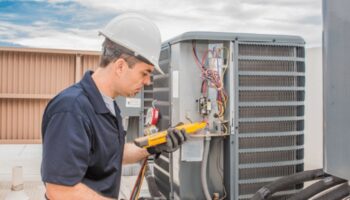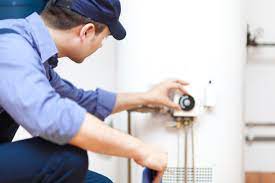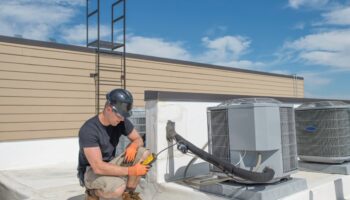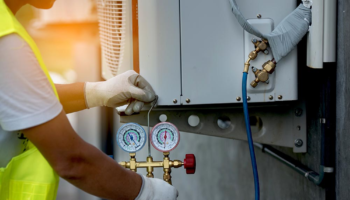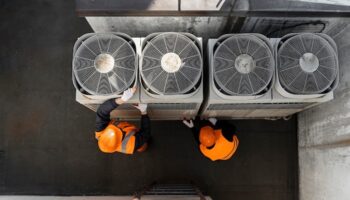A well-functioning HVAC (Heating, Ventilation, and Air Conditioning) system is important for maintaining optimal temperature and air quality in your home. As a homeowner, you must ensure that your HVAC system runs smoothly to enhance the overall comfort and energy efficiency of your living space. This article will discuss the significance of regular HVAC maintenance and explore the benefits this practice entails.
Top Benefits of Regular HVAC Maintenance
- Improved energy efficiency: A well-maintained HVAC system operates more efficiently, consuming less energy and lowering your utility bills. Tuning up your unit ensures that it runs optimally, reducing energy waste.
- Extended equipment lifespan: Regular maintenance helps detect and rectify minor issues before they worsen, saving you from costly repairs or premature replacements. A well-serviced HVAC system lasts longer and performs better throughout its lifespan.
- Enhanced indoor air quality: A clean, well-maintained HVAC system promotes healthy indoor air by removing contaminants such as pollen, dust, and mold spores. This ensures a comfortable environment for allergy-sensitive individuals.
- Fewer repairs &breakdowns: Consistent maintenance helps prevent unexpected breakdowns, which can be particularly inconvenient during extreme weather conditions. By identifying potential issues early, you can avoid costly emergency repairs.
- Ensures warranty compliance: Most HVAC manufacturers require that the unit is regularly serviced to keep the warranty valid. Staying up-to-date with maintenance protects your investment and maximizes your system’s lifespan.
Common HVAC Maintenance Tasks
While some maintenance tasks can be performed by homeowners, it’s best to rely on qualified professionals for in-depth servicing. A qualified professional for HVAC maintenance in Elmhurst will make sure that the job is done right. Some common HVAC maintenance tasks include:
- Cleaning and replacing air filters.
- Checking and calibrating thermostat settings.
- Inspect electrical connections, wiring, and motor components.
- Lubricating moving parts to reduce friction.
- Examining all safety controls for proper operation.
- Testing the starting capacity of the motor and compressor.
- Checking refrigerant levels and airflow.
These tasks help to keep your HVAC system in top working condition, ensuring that it operates efficiently and providing you with a healthy and comfortable home environment.
Detecting Early Signs of Trouble
Part of regular maintenance is being vigilant for signs of potential problems. One common issue homeowners might encounter, for instance, is if their HVAC system starts to short cycle. This is when the unit turns off and on in rapid succession without ever reaching the target temperature or completing its usual cycle. Not only does this lead to temperature fluctuations, but it can also damage your HVAC system as well as your wallet due to increased energy bills.
Some more signs that indicate trouble with your HVAC system include strange noises, odd smells, and insufficient airflow. If you encounter any of these issues, it’s important to contact a qualified technician for repairs as soon as possible. Furthermore, by knowing what to do when your AC is short cycling and other common problems, you can prevent excessive damage and costly repairs.
To Conclude
Regular maintenance of your HVAC system is essential to its longevity and efficiency. Not only does it help you save money on energy bills, but it also enhances the air quality in your home and prevents unexpected breakdowns due to minor faults. Knowing the signs of potential issues and taking preventive measures can help you stay cool and comfortable throughout the year. Thank you for reading!

